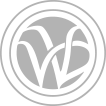Its form may be conventional (sonnet); its content is not.
Out there we walked quite friendly up to Death (1)
Quite friendly! Isn't Death (personified by Owen to heighten the reality) the enemy? It seems not.
Oh Death was never enemy of ours (9)
Death can be nonchalantly walked up to, sat down beside, eaten with. A meal with Death! That symbolic act of sociality and fellowship! Death's table manners may not be of the best ('spilling mess tins in our hand') but still 'we laughed at him' (10), more than that, we 'leagued with him' (10) as if after all we might be on the same side.
Can coolness, blandness such as this really be a part of war? Yes, Owen says, for it links with courage, comradeship, pride, an unconquerable spirit. To read Sassoon's remarkable MEMOIRS OF AN INFANTRY OFFICER is to have it confirmed that something in the soul of man makes such an attitude more than a mere defence mechanism.
Here then is one aspect of the poem. Against this buoyant strain runs a harsher counter-melody, as if Owen is saying don't let's forget what has to be overcome for optimism to prevail, and echoes of other Owen poems help to put things in perspective. When in line 4
We've sniffed the green thick odour of his breath
We're reminded of DULCE ET DECORUM EST and the 'thick green light' through which Owen watches his comrade die of poison gas. Though 'our eyes wept…..our courage didn't writhe' (5) we read and with Owen we see 'those white eyes writhing in his face', and we are made to understand that high endeavour and incomparable spirit in no way preclude the torment.
He's spat at us with bullets, and he's coughed
Shrapnel. (6-7)
Onomatopoeic, like 'the stuttering rifles' rapid rattle' of ANTHEM FOR DOOMED YOUTH. We may have 'chorused if he sang aloft' (7) or 'whistled while he shaved us with his scythe' (8), but the 'shrill demented choirs of wailing shells' will not always be capable of being out-sung.
Wilfred Owen sent the first draft of NEXT WAR to his mother on 25th September 1917, telling her a week later, 'I included my "Next War" in order to strike a note. I want Colin (his youngest brother) to read, mark, learn etc it.' What exactly did Wilfred want Colin to learn? The answer must lie in those last three lines in which, as in STRANGE MEETING and THE SEND-OFF, for example, he dons his prophet's hat.
….knowing that better men would come
And greater wars: when every fighter brags
He fights on Death, for lives; not men, for flags.
If by greater wars he means wars ultimately of wider significance, then prophet he truly is, with World War Two away on the horizon, the cause of which was to have a sharper edge to it. Good that Colin should learn about man's indomitable spirit and its ascendancy over evil. That 'flags' (a metaphor for national aggrandisement) are never worth the sacrifice of one life let alone millions, would not have been a bad thing for Colin to learn either.
Copyright Kenneth Simcox 2001
